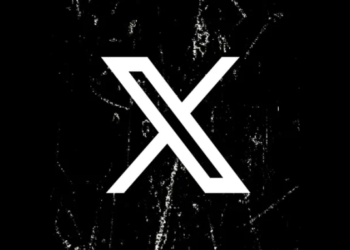The world of tech and social media has rarely been this unforgiving. Ezra Olubi, co-founder of Paystack, is now facing the harsh consequences of past actions, with his recent termination from the company highlighting a crucial lesson for anyone online: what you post, even years ago, can follow you forever. Social media scandal costs Paystack co-founder Ezra Olubi his job, and the way it unfolded shows how public opinion, amplified by the internet, can affect professional lives instantly.
The Fallout From Old Posts
The controversy began when an accusation of abusive behavior went viral online. Soon after, users dug up old tweets from Olubi’s account, dating between 2009 and 2013, containing sexually suggestive content and disturbing remarks. For many, these posts were enough to question his character, regardless of his recent conduct or contributions. The resurfacing of these tweets turned into a public reckoning, forcing Paystack to act swiftly.

Olubi says he was dismissed before he could defend himself. According to his blog post, the investigation into the allegations was ongoing when the company terminated his contract. He claims he was not given a hearing or the chance to clarify his side, and that assumptions spread freely during the silence imposed by the investigation process. Yet, the speed of the response reflects how seriously companies and the public now treat online behavior.
Lessons for Social Media Users
The saga underscores one uncomfortable truth: the internet never forgets. Social media scandal costs Paystack co-founder Ezra Olubi his job, but it also serves as a warning to everyone posting online.
Disturbing or offensive posts, sexual content, or insensitive remarks can resurface years later, potentially destroying reputations and careers. It is not enough to apologize later, the digital footprint remains, and public scrutiny is relentless.
For young professionals and tech leaders, Olubi’s case is a stark reminder that digital behavior carries consequences. In today’s climate, even actions from over a decade ago are subject to scrutiny, and companies are under increasing pressure to respond decisively.
Corporate Responsibility and Public Pressure
Paystack’s response reflects the complex balance between due process and corporate image. While Olubi claims the investigation was incomplete, the company faced intense public pressure to act. Social media platforms have become arenas where public opinion can dictate corporate decisions. Boards now have to weigh reputational risk against fairness, and in high-profile cases, the former often dominates.
The incident also highlights the ethical expectations placed on founders and leaders of major companies. Beyond technical skill or business acumen, leaders are now judged on their character, both past and present. For African tech startups that aspire to global relevance, personal conduct has become as critical as innovation itself.
Why The Posts Were Controversial
The old tweets resurfaced because they were gory, sexual, or uncomfortable. But beyond the shock value, they highlight the danger of thoughtless social media behavior. Public outrage is often fueled not just by the content itself but by a perception that the individual lacks accountability. Olubi’s experience shows how the online world does not tolerate behavior that seems to exploit or disrespect others, even if it happened years ago.
A Digital Age Reality
Social media scandal costs Paystack co-founder Ezra Olubi his job, but this story is bigger than one individual. It is a lesson about responsibility, accountability, and the permanence of online behavior. In the age of instant viral outrage, everyone, from tech leaders to ordinary users, must understand that actions on social platforms carry weight far beyond the moment they are posted. For those building careers or companies, it is a harsh reminder that the internet is a permanent witness, and past missteps may return to demand consequences in ways that are both brutal and unavoidable

















